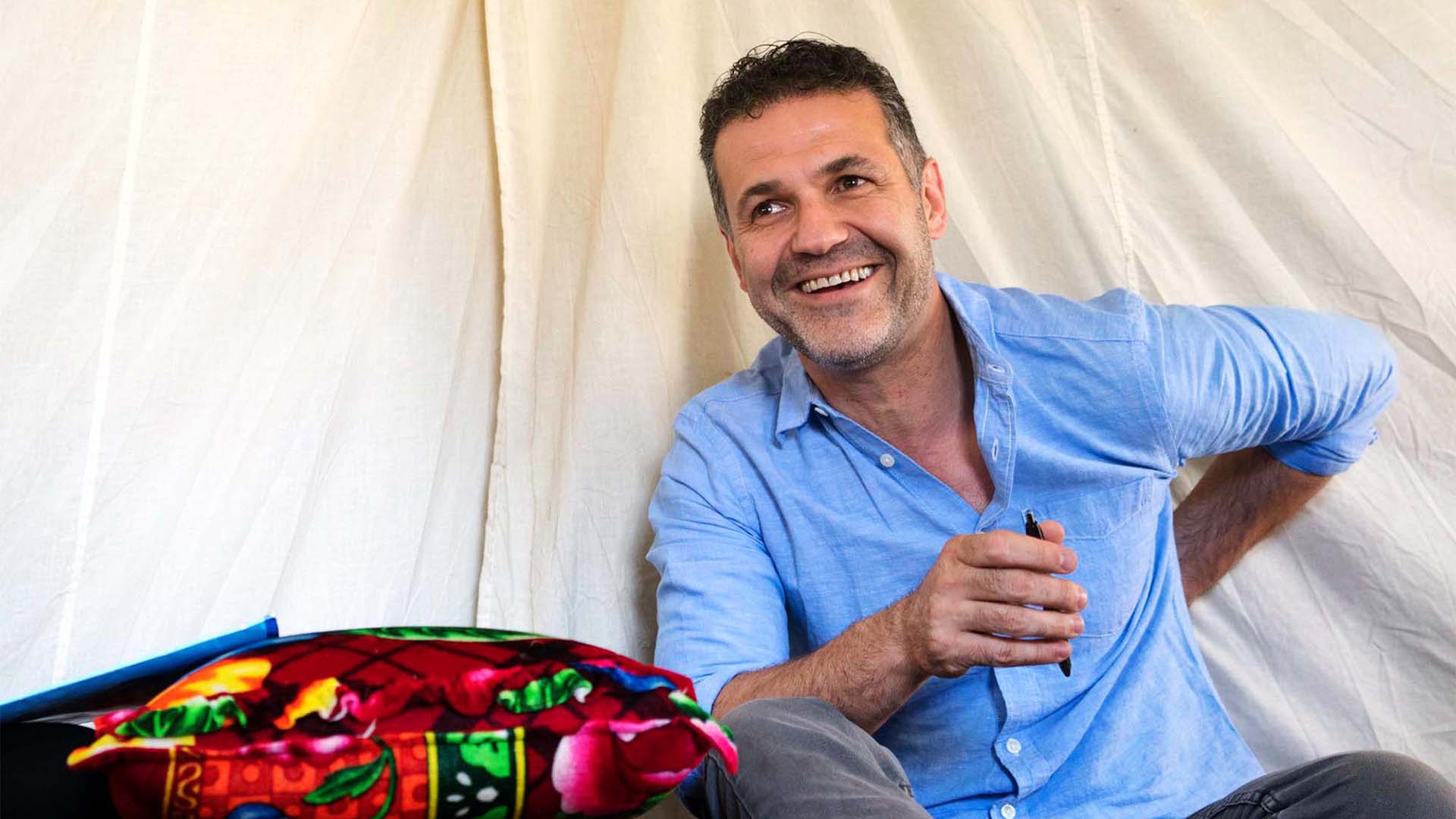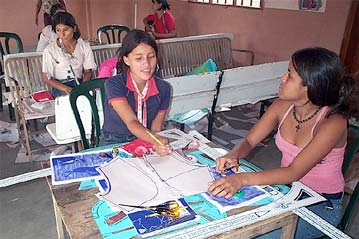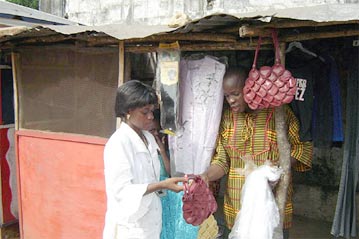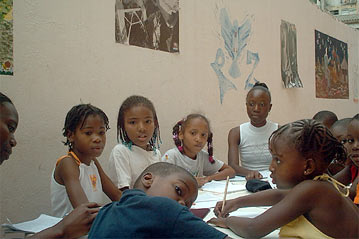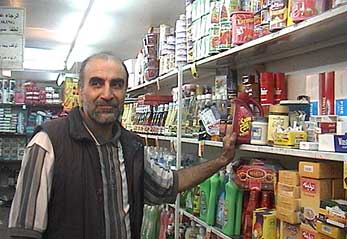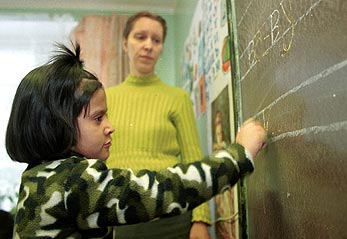Squatter camp in South Africa underscores need for urban refugee policy review
Squatter camp in South Africa underscores need for urban refugee policy review

TSHWANE, South Africa, Feb 23 (UNHCR) - It is Friday night and residents of Tshwane, formerly Pretoria, are preparing for a big night out. Not far from the growing swell of party-goers, a group of underdressed men, women and children huddle together against the biting cold as the overcast sky threatens to unleash another downpour. Weary and exhausted, they ready their umbrellas and press against the green fence as they wait outside the offices of the Department of Home Affairs (DHA).
The group of some 300 asylum seekers from Zimbabwe, Malawi and Tanzania has gathered here to get vital documentation legitimising their stay in the country. Many of the Zimbabweans were kicked out of their homes in Zimbabwe under Operation Murambatsvina, a government clean-up campaign of alleged unauthorized housing that has affected an estimated 700,000 people throughout the country. Some among the group have no documents or permits, others simply have nowhere to go.
They are determined to stay put outside the DHA, awaiting their turn with an immigration officer. Any premature move will mean losing their spot in the queue, which snakes around the government compound. Queen-sized beds are propped against the fence, and the asylum seekers ignore the curious stares of night revellers as they do their laundry or prepare their dinner. A mini tuck shop makes a brisk trade supplying them with basic domestic items.
Litricia Sibanda is a 30-year-old asylum seeker from Bulawayo, a city in southern Zimbabwe bordering South Africa. "Our properties and livelihoods have been destroyed so we found ourselves left with no options but to seek protection and to make a living elsewhere," she says in frustration.
She and 13 women and children have travelled about 60 km from Johannesburg to the DHA, where they intend to wait all weekend if necessary. "We have no choice," says Sibanda. "The police are always after us. When they meet us in the street, they demand to see permits which we don't have. This is an automatic invitation to be taken to the Lindela Repatriation Centre for deportation. That is why we choose to stay out here until we get our papers."
Working with the DHA, UNHCR's deputy representative in South Africa, Abel Mbilinyi, brought a team to mediate. They persuaded the asylum seekers that squatting was unlawful, and tried to facilitate their access to legal documentation. The team also sought to refer people with specific needs to implementing partners so they could gain practical help.
Nonetheless, the mere presence of the de facto squatter camp points to a bigger problem: inadequate policies to address the needs of refugees and asylum seekers in urban areas.
"UNHCR's expectations for asylum seekers and refugees in structured urban environments have always been for governments to play a significant role in protecting them and searching for durable solutions to solve their problems. The 1997 policy falls critically short of addressing some of the fundamental challenges found in these areas," says Ebrima Camara, the agency's Regional Representative for Southern Africa, referring to UNHCR's 1997 "Policy on Asylum Seekers and Refugees in Urban Areas".
To address these concerns, the UN refugee agency recently held a two-day workshop to review this policy. Delegates from Uganda, Zambia, Benin, Gabon, Sudan, Kenya and South Africa met to help give UNHCR a better perspective on issues affecting refugees and asylum seekers in structured urban areas, and to devise effective strategies that are achievable and results oriented.
Camara acknowledges that South Africa has shown its goodwill towards the institution of asylum by enacting all legislation relating to refugee protection and creating institutions and laws to guarantee the protection of refugees and asylum seekers, as well as granting access to employment. However, the country has not effectively or adequately addressed the problem of access to services such as social grants, medical facilities and treatment for HIV/AIDS, among other things.
Without legal documentation, asylum seekers often find themselves at the mercy of zealous law enforcement officials and corrupt civil servants. Deprived of accommodation and other fundamental rights without the required documents, they remain unprotected and unassisted.
Service delivery is further complicated by systemic delays caused by mixed populations of illegal immigrants, economic migrants and victims of human trafficking, all of them competing for the same resources in urban areas.
To combat these problems, UNHCR's Camara encouraged the workshop to look into innovative methods to address refugees' needs through participatory assessments, greater communication between UNHCR, governments, non-governmental organisations as well as asylum-seeker and refugee communities.
"These methods must be considered indispensable if we are to do more for asylum seekers and refugees," he says.
When the "Policy on Asylum Seekers and Refugees in Urban Areas" is revised later this year, it is expected to better equip and enable UNHCR, its government counterparts and NGO service providers to get to the heart of problems facing asylum seekers and refugees in urban areas. In the South African context, this will hopefully mean that Sibanda and her compatriots will never have to expose themselves to the elements in the attempt to exercise their fundamental human rights as asylum seekers and refugees.
South Africa hosts approximately 29,000 recognised refugees and 110,000 asylum seekers whose asylum applications are not finalized.
By Pumla Rulashe
UNHCR South Africa

